10 Authors Discuss The Goonies, Running Away From Home, and More in August’s YA Open Mic
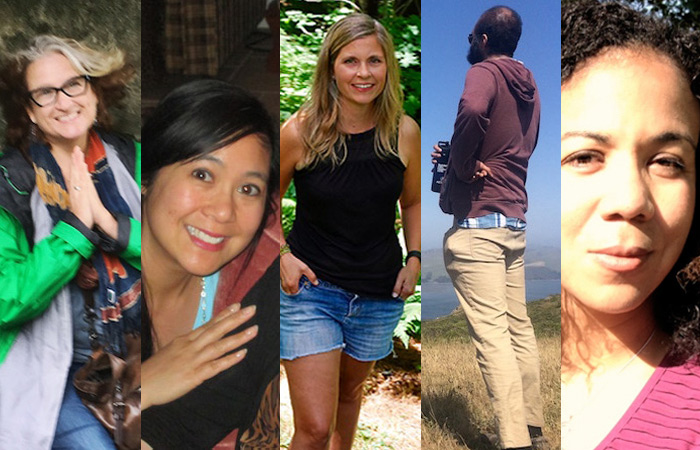
YA Open Mic is a monthly series in which YA authors share personal stories on topics of their choice. The aim of the series, above all, is to peel away the formality of bios and offer authors a platform to talk about something readers won’t necessarily find on their websites.
This month, 10 authors discuss everything from The Goonies to running away from home to experiencing anti-Semitism. All have YA books that release this month. Check out previous YA Open Mic posts here.
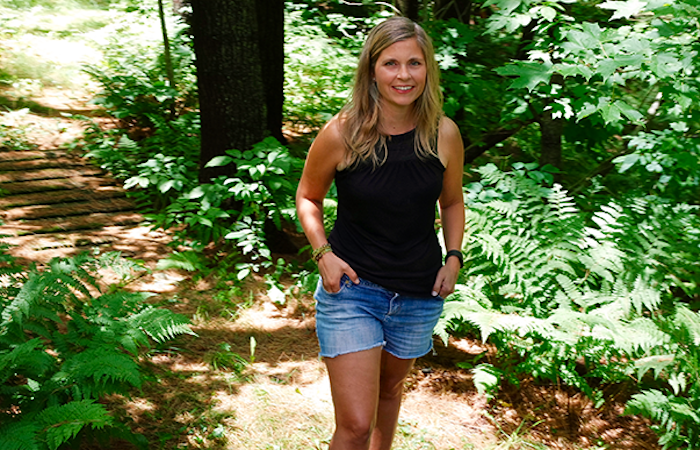
Jo Knowles, author of Still A Work in Progress
When I was young, maybe six or seven, I got so upset with my mom I decided to run away. I packed a little gray suitcase with a pair of underwear, pajamas, and a sweater, grabbed the enormous teddy bear I lugged around everywhere, and headed out the door. I distinctly remember how angry I felt. I was trying to tell my mom something important and she wasn’t listening. I was the youngest of three in a house full of animals and constant chores and chaos and I’m sure my mom was just distracted. But at the time, I was desperate to be heard. I stomped outside and up a grassy path that led to a trail in the woods behind our house.
When I reached the trail and the cold shade of the trees, I began to have second thoughts. I squeezed my bear, trying to be brave, and took a few steps into the dark woods. Then I stopped. Terrified. I’d never make it. I slowly walked back home to my mom.
For years we joked about it, but what I remember most is how it felt to want to say something and have no one listen. As a writer, you get to share your stories—things that matter deeply to you—with strangers you’ll never meet. Often I get letters from readers who write, “Your book made me feel less alone.” Being able to share my thoughts and feelings makes me feel less alone, too. Writing gives me a voice. It makes me feel heard. Growing up, if it hadn’t been for the teachers and mentors who encouraged me to keep writing and sharing my work, I might never have discovered this. They changed the course of my life. In many ways, I think they saved me.
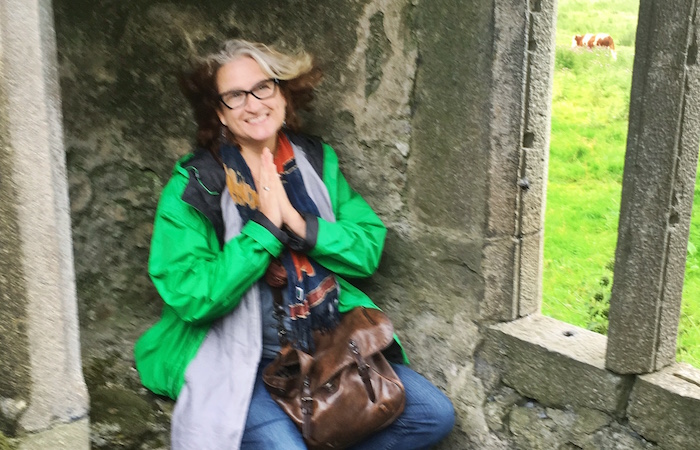
Jaye Robin Brown, author of Georgia Peaches and Other Forbidden Fruit
It wasn’t until college that I heard my first negative comment about Judaism. My suite-mate, unaware of my family makeup, made a derogatory remark. I was shocked. I thought we were on our way to a solid friendship. Worse was the feeling in my belly. A feeling of otherness and the fear of being the object of her derision.
My religious upbringing was a glorious hodgepodge. My mother left Judaism to worship at an Episcopal church. I was raised with Sunday services, baptism, and confirmation. At Passover, I’d open the door for Elijah and hunt for matzo with my cousins. When I started attending Catholic school in tenth grade, I joined my friends for mass, learned the Stations of the Cross, and was grateful I wasn’t allowed to take confession. My favorite babysitter took me to St. Rose of Lima to play Bingo. Other friends shared their Methodist, Baptist, or Presbyterian services when I’d spend the night on Saturday. As a result of this diversity, religion became a communal experience to me. An all-you-can-eat buffet of faith. It didn’t matter where you were worshipping, just that you were.
So when I heard her hateful joking tone, I was surprised, then angry. Speaking up was hard. Speaking up as the brunt of the joke, even harder. Fortunately, something changed for me that day. The tiniest bold voice found its way out. “I’m half-Jewish.”
She was aghast and apologetic. She never would have said it in front of me if she’d known. I’ll never know if she turned away from me in the weeks to come because of embarrassment or prejudice, but our budding friendship died that day.
I don’t regret speaking up. It was a pivotal moment for me. One I continued to draw upon as I came out in my late twenties. Sometimes our “supposed” otherness is not on the surface, and it makes people brave in cowardly ways. They’ll say things without thought because it won’t matter. As a teenager it was hard for me to speak up. I’m glad that’s changed. It’s important to give a face to differences. It’s how we can change the world. One relationship at a time.
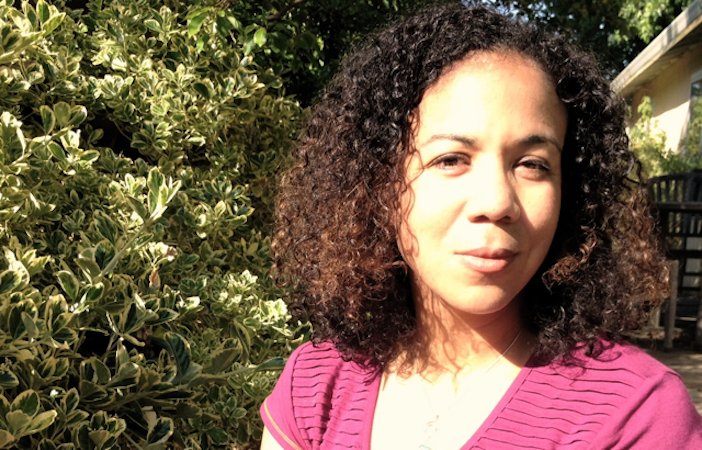
Stephanie Kuehn, author of The Smaller Evil
This past Sunday, I got together with a group of New England boarding school friends whom I hadn’t seen in a while. Twenty-five years, to be exact. As we sat outside in the lovely mix of San Francisco sun and fog, I mentioned having grown up in Berkeley, which prompted someone to ask the question I’ve always dreaded answering: “Why did you decide to go to boarding school?”
I usually deflect or talk about how I wanted to study film or have an adventure or find a little of the New England romanticism you see in Dead Poet’s Society. These things are all true, but the bigger truth is I was depressed and simply couldn’t see anything good in the life I’d created in Berkeley. Moving across the country to a place where no one knew me was a chance to reinvent myself. To become someone I wasn’t.
I’m well aware that running away from one’s problems isn’t meant to be an ideal solution. Or any kind of solution, at all. But for me, it worked. I switched my environment and I changed myself. And whether ideal or not, the pragmatism of running away, both literally and figuratively, is one that recurs in my writing. Over and over and over again.
My latest book is about a boy who runs away to the hills of Big Sur. That was also something I thought about this past Sunday, as I drove home, heading east into a sky full of haze. That haze wasn’t fog, but smoke and ash blowing up from the terrible wildfire burning in Big Sur. I was born in Monterey County and it’s horrific to see so much damage. But I also know Big Sur will recover. Rebirth rarely happens in ideal ways, but it does happen.
This is a truth I am grateful for.
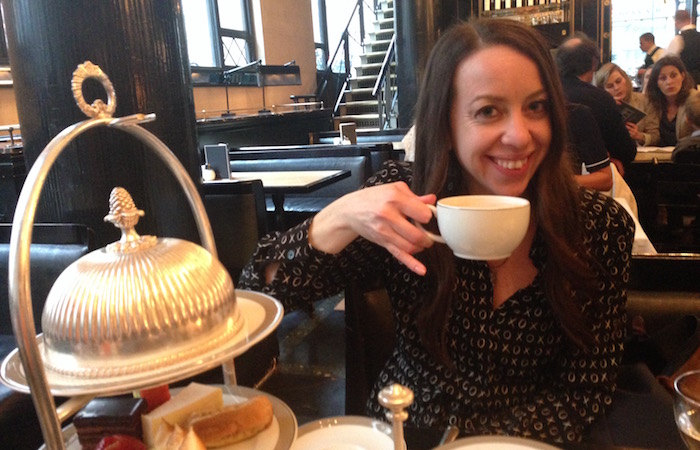
Jessica Brody, author of A Week of Mondays
I published my first novel when I was seven years old.
My second-grade teacher assigned us to write a story. Then we printed them out and bound the pages together with cardboard wrapped in wallpaper, secured with electrical tape (the original self-publishing). Little did I know at the time, this simple “arts and crafts” project would change my life.
On that fateful day in second grade, I wrote a story called “The Puppy and the Kitty.” I still have it to this day. I remember the feeling I got when I saw my work in print for the first time and was able to put it on my shelf next to the “real” books. It was my first taste of creative pride and it was like nothing I’d ever felt before. That feeling stayed with me, even as I graduated from college with a degree in Economics. Even as I took a high-paying corporate job as a financial analyst in Los Angeles. Even as I tried to deny my true path, in exchange for a steady paycheck and dental insurance.
But ten years ago, I took a leap of faith. I quit my corporate job to pursue my passion for writing. I always knew my second-grade teacher had lent a hand in nurturing that passion. I just never realized how much until recently, when I found my second-grade yearbook. Skimming through all of the scribbled autographs from classmates, I came across a note from this teacher. She called me her “author” and told me I was “going places.” I broke into tears when I read that.
I’m not sure she knew it at the time, but she was laying the first stone on a path that would eventually lead me here. I’ve finally become the person I wanted to be at age seven. A person she recognized, even if it took me twenty extra years to see it.
So even though she and I haven’t spoken in thirty years, she’s still with me. Her voice is still there, telling me I’m going places. She is forever a piece of my story.
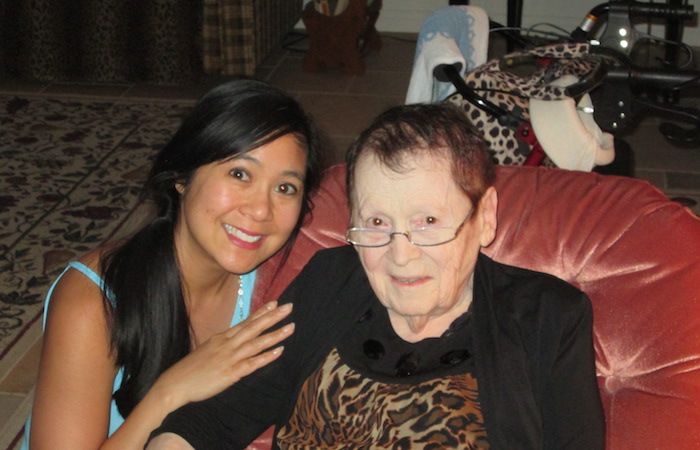
Lygia Day Peñaflor, author of Unscripted Joss Byrd
“Heyyy youuu guyyys!” If you’ve seen The Goonies, you know Mikey, Chunk, Data, Mouth, Stef, Andy, Brand, and Sloth. Well, I’d like to tell you about a lesser-known adventurer—my dear friend Rhoda Fine.
Rhoda Fine retired from studio teaching last summer at the age of 91. Our friendship began over 10 years ago when I become a set teacher and I emailed Rhoda for advice. Since then, she’s shared her wisdom and teaching tips, but the most generous gift she’s given me are her stories from nearly 40 years in the film industry. This one is my favorite:
On the stunt-heavy set of The Goonies back in 1984, Rhoda’s top priority was the kids’ safety; she never let them do anything unless she tried it out first. So, when Steven Spielberg revealed the now-iconic giant waterslide covered in stalactites, Rhoda insisted on taking the first turn. She climbed up the back steps all the way up to the stage ceiling and slid down in her sweatpants and T-shirt (sans bra because she didn’t want it to get wet) while Steven held cameras on her. After Rhoda landed in the pool, Steven asked how it was. Of course, in the best interest of her students, Rhoda told him she’d have to try it again! She did, leading the Goonies at least five times. To entertain the crew, Steven showed the footage of Rhoda’s slide during the dailies, but she never got to see it herself.
I visited Rhoda in her L.A. home last week, and I asked her to tell me this story again. She said she doesn’t know what happened to Steven’s footage of her. I really hope it still exists so that fans can see it someday. Until then, I’ll tell anyone who will listen that, yes, there was Mikey, Chunk, Data, Mouth, Stef, Andy, Brand, and Sloth. But there was also Rhoda Fine—the other Goonie.
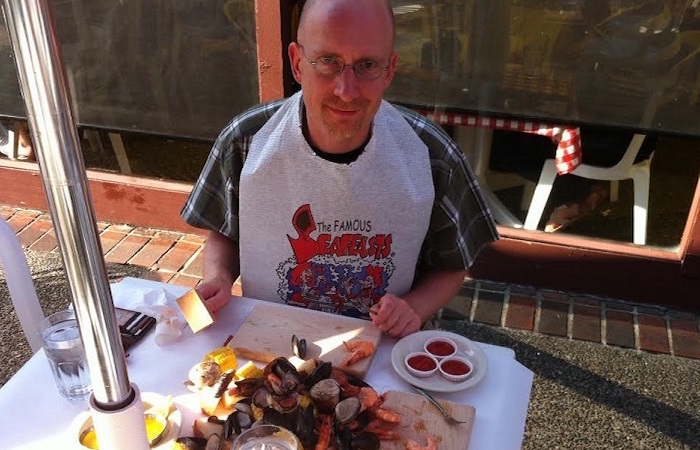
Brent Hartinger, author of Three Truths and a Lie
I once wrote a YA book, Grand & Humble, in which the main character unexpectedly starts suffering from panic attacks. I wrote what I’d always heard panic attacks were like: the pounding pulse, the shortness of breath.
A few years later, overcommitted and overwhelmed by all the pressure I’d put on myself, I was giving a presentation, and completely out of the blue, my brain locked up. Of course I got flustered and embarrassed. I couldn’t breathe, but that was the least of it. The worst part was I couldn’t control my thoughts.
Afterward, my embarrassment quickly turned to shame. Why couldn’t I control myself? Was I really so weak? Then the shame segued into a profound dread that this weird experience was going to happen again. And during the next presentation, it did. My life instantly became all about avoiding any situation that might trigger another horrible attack.
Panic attacks, I realized, were nothing like what I’d written! I hadn’t come close to capturing the powerlessness, and the fear that lingered afterward, always rumbling in the back of my mind like a storm in the distance.
My therapist said the only real way to defeat panic attacks was for me to face my fear. In other words, making panic attacks go away meant accepting they might happen again.
He was right, but it was the hardest thing I’ve ever done. In the end, the attacks did stop, but the fear has never gone away completely. Even today, in times of stress, I hear the rumble.
But that’s okay. Being a writer is all about empathy, and the experience gave me a compassion for others I’d never experienced before, an empathy even deeper than my fear.
Plus, if I ever write about panic attacks again, I’ll know exactly what to say.
P.S. Xanax also helped!
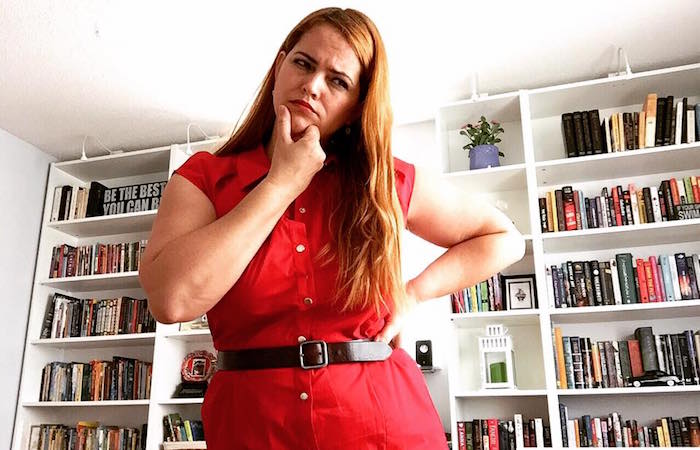
Gaby Triana, author of Wake the Hollow
When teachers began giving me dance solos and entering me in writing contests in high school, I realized I must be doing something right. First-prize ribbons became a regular thing. I excelled without meaning to, and to some, this was unforgivable.
Unless you attend a high school specifically for those who excel at academics, music, dance, etc., being good at something can suck. When I moved up even more and became dance captain, girls in my color guard began talking about me. Rumors spread. “Triana thinks she’s great.” “Triana must’ve slept with someone.” I didn’t understand what was happening. My best friends explained that others were jealous. “It’s lonely at the top” became a mantra. My talents became my downfall.
Senior year, I got the chance to march with a higher-level color guard, but it would mean leaving my high school guard behind. I struggled with what to do. Should I perform with the higher-level group but get the evil eye for “abandoning” my core group? I didn’t want to hear more whispers behind my back.
It didn’t end with high school. My Teacher of the Year Award earned me sneers from my peers. My cake creation for Pitbull’s 30th birthday got me snubbed by fellow cake designers. “Triana thinks she’s better than everyone else.” Same thing all over again.
Why can’t we be happy for our friends’ successes? There’s enough to go around, so why not support each other? If you ever come across this mentality in high school, all I can say is, GO FOR IT. Forget the naysayers. Just be your best self. Do your thing, what makes you happy. Naysayers will always be that way, so don’t change yourself just to befriend them. Your true friends WILL make themselves known, and when they do, those are the ones you keep for life.
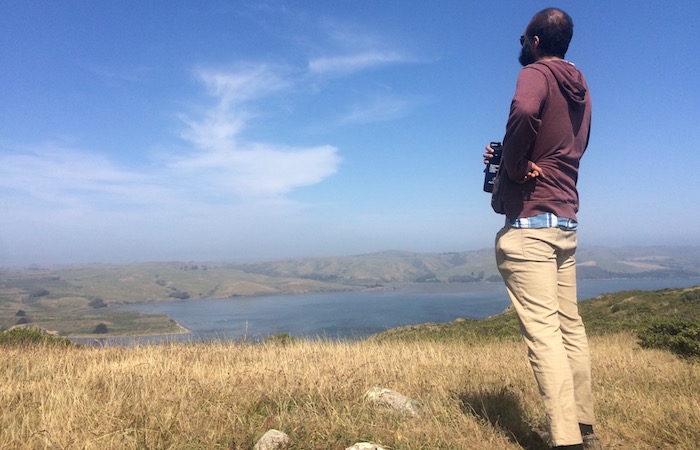
Rahul Kanakia, author of Enter Title Here
My debut novel is about a girl who really, really wants to be valedictorian, mostly because she thinks she’s the best, and she wants everybody to know it.
I was not valedictorian of my high school class, but pretty much from the beginning of high school I dreamed of someday being Student Council President. What I craved was the importance that came with the title. The President gave a speech at the start of the year, and he normally spoke at graduation. He was master of ceremonies at the talent show and sundry other events. He went to board meetings. He was a personage.
And I was nobody. Not unpopular, but not even on the radar for a job everybody assumed would go to “Eric.” He was well-liked in our class. Won the headmaster’s award every year. Was always our class representative.
Most people in my class, even my friends, told me they were voting for him. But our school was grades 6 through 12, and the middle schoolers didn’t really know him. So I put up lots of fliers, enlisted lots of younger kids to campaign for me, and gave a rabble-rousing speech that pissed off our headmaster (who loved Eric).
When I won, it was the best day of my life. I’d wanted something, and I’d worked hard, and I’d gotten it.
(Though I never really got to taste the fruit of my victory. The administration shut me out. I didn’t give the speeches or MC the ceremonies. Eric, as my Vice President, did most of the work organizing prom and our dances.)
Years later, I was in a café talking to my best friend about the race, and I realized…Eric was the better person. He worked harder. He was nicer. He got better grades. Even in defeat, he was gracious. Eric had deserved to win. I’d always thought of myself as the hero of this story—the underdog who upset the odds—but actually I was the villain.
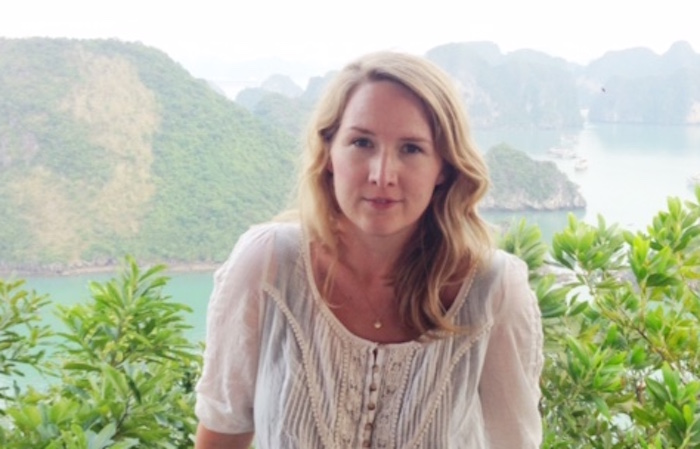
Alexandra Sirowy, author of The Creeping
I started writing ghost stories when I was eight years old. They weren’t of the spooky variety, though. They centered around a ghost child and a living child becoming friends. I was obsessed with friendship, likely because we moved so often and I was always saying goodbye to friends.
Then I got to high school, where I fell hard for political science. I loved studying the invisible forces that make governments behave as they do. And gradually, I forgot about writing. I went off to college and as an undergrad studied international relations. I had a plan. I went on to study political science as a graduate student. I studied abroad in the region, wrote my thesis on a complicated political theory, and had my future all figured out. I graduated and began looking for a job in the region. This was right when the Arab Spring was spreading through the Middle East, and during the upheaval, many of the organizations I wanted to work for weren’t hiring. Getting the job I’d dreamed of looked impossible. I felt like a big fat failure. Everything I’d worked for felt just out reach. At this time, I found my way back to writing and began my first novel.
Everyone fails or feels like they’ve failed. You change; the world changes; you may feel like it doesn’t want you anymore. And yet somehow this perceived failure worked out to be one of the best things ever to happen to me. I found my way back to the thing that satisfies me the most.

Ann Aguirre, author of Infinite Risk
I’ve always been weird. The tone of my life was etched in stone, maybe even before I was born. When they left the hospital, my parents brought me to a house universally acknowledged to be haunted. Not horror movie haunted (blood from the walls and bodies flung across the room), but full of shit that cannot be explained. For instance, there was a recording-style haunt:
2 a.m., thump. Baby cries. Sound of footsteps running overhead. Someone runs down the stairs, through the kitchen, opens door, slams it, runs down back porch. Car door opens and closes. Baby still wailing. Car starts and drives away. Multiple people heard this over the years. I got a reputation. Nobody ever wanted to come for sleepovers.
My parents got an amazing deal on the house out in the middle of nowhere and literally across the street from a corn field. I don’t think I need to elaborate on how creepy that is. But to make matters weirder, there was a ginormous statue of the Virgin Mary. Only thing around, too. Bizarre, huh? We used to cross Highway 41 and hang out on the steps. Cool kids drank over there, too. I was not among their number. Anyway, I digress.
As a kid, I had an invisible friend I called Henry. I don’t say imaginary because this thing existed and could impact the physical world. I can remember being eight years old and doing worksheets at my desk; I’d turn away to get an eraser and when I looked back again, my homework had vanished. Nobody else in the room. Just me. I’d say, “Henry, I don’t have time for this. I’m closing my eyes and counting to five. I want my papers back.” When I opened them? The homework would be back.
That’s actually the least frightening anecdote I could tell. The woman living in the house before us had a nervous breakdown and had to be hospitalized. My mother took to wedging knives in the front door to keep it from unlocking and swinging open during the night. Much later, a random psychic who knew nothing of my past grabbed my hand and said, “Oh, honey, be careful. You’re a lightning rod for the paranormal, and if you call out, bad things will answer.”
Huh. I wish I’d known that earlier. Before I made some terrible, interesting life choices. But that’s another story.
The moral of this is simple: people may not always like you. They may not believe your stories. What matters most is being okay with your history and your own special brand of weird.